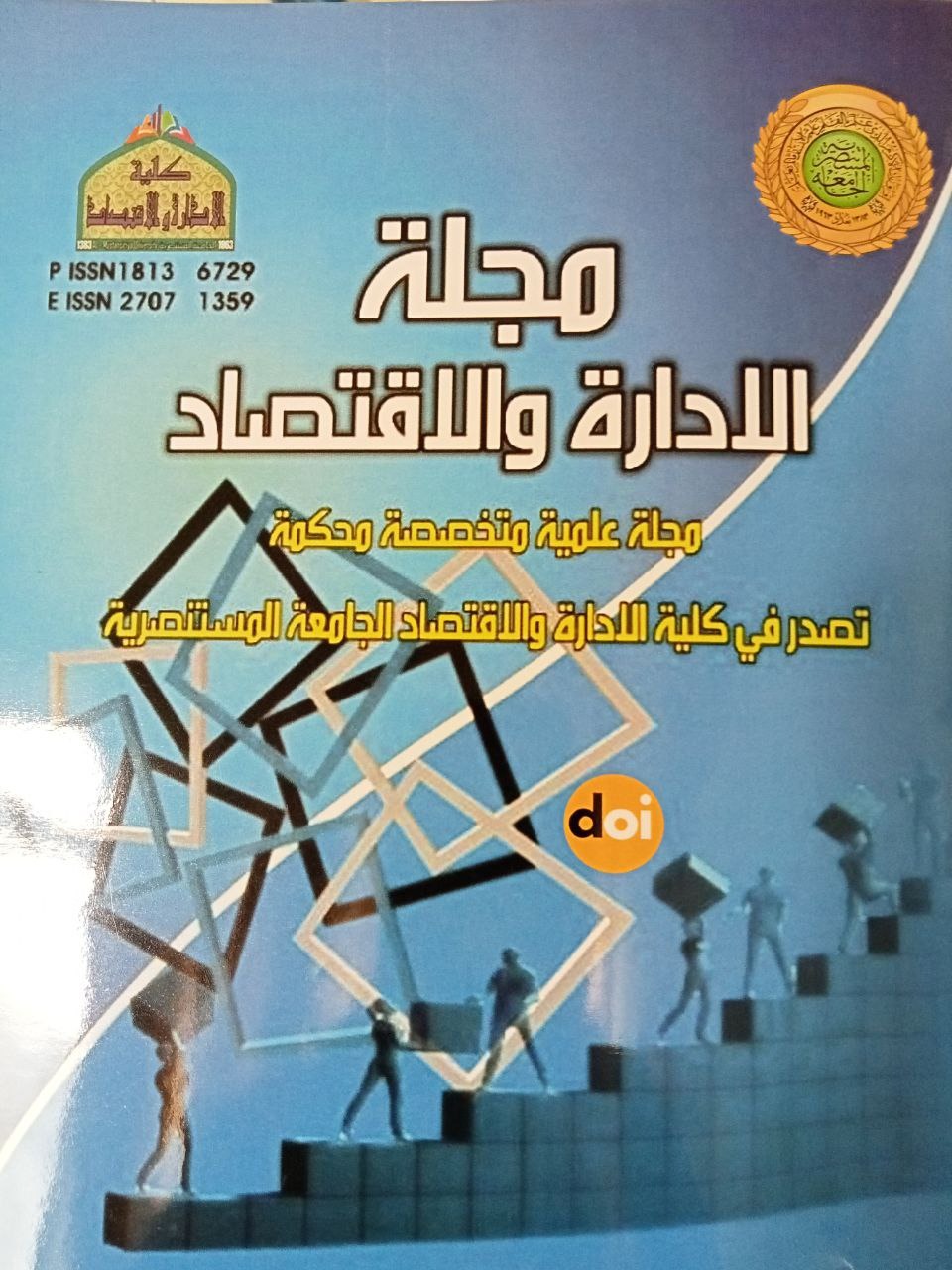Abstract
The current research aims to test the effect of knowledge sharing in achieving organizational pride, and in order to achieve this, the dimensions of knowledge sharing represented by (the individual dimension, the organizational dimension, the technological dimension) were adopted based on the study of Lin, 2007)), and the dimensions of organizational pride represented by (pride Emotional, behavioral pride) based on a study (Kraemer & Gouthier, 2014), and the staff of the Ministry of Youth and Sports headquarters in Baghdad were selected to test this research, as the research problem was diagnosed through coexistence as well as frequent visits and continuous personal interviews with employees, which was represented in the extent of their cognitive and field awareness For the accurate conceptual content and the importance of the research variables, a questionnaire was prepared for this purpose, as it concluded (242) individuals from different levels, and the data was analyzed through a set of appropriate statistical treatment methods, as (Pearson) correlation analysis was used for the purpose of testing correlation hypotheses, and the use of correlation modeling Structural Equation Modeling, as well as Path Analysis to test impact hypotheses. The research reached a set of results. Most notably, there is a significant effect of knowledge sharing in its dimensions in organizational pride.
Keywords
individual dimension
knowledge sharing
organizational dimension
organizational pride
technological dimension.
Abstract
يهدف البحث الحالي إلى اختبار تأثير التشارك المعرفي في تحقيق الفخر التنظيمي ، ولأجل تحقيق ذلك تم اعتماد أبعاد التشارك المعرفي المتمثلة بـ(البعد الفردي ، البعد التنظيمي ، البعد التكنلوجي ) استناداً إلى دراسة Lin، 2007))، واعتماد أبعاد الفخر التنظيمي المتمثلة بـ(الفخر العاطفي ، الفخر السلوكي) استناداً إلى دراسة (Kraemer&Gouthier،2014)، وتم اختيار موظفي مقر وزارة الشباب والرياضة في بغداد لاختبار هذه البحث، اذ تم تشخيص مشكلة البحث من خلال المعايشة وكذلك الزيارات المتكررة والمقابلات الشخصية المستمرة مع الموظفين والتي تمثلت في مدى ادراكهم المعرفي والميداني للمحتوى المفاهيمي الدقيق واهمية متغيرات البحث، وتم اعداد استمارة استبانة لهذا الغرض، إذ خلصت الى (242) فرداً من مختلف المستويات ، وتم تحليل البيانات عبر مجموعة من أساليب المعالجة الإحصائية المناسبة، إذ استخدم تحليل ارتباط (Pearson) لغرض اختبار فرضيات الارتباط ، واستخدام نمذجة المعادلة الهيكلية (Structural Equation Modeling) وكذلك اسلوب تحليل المسار ((Path Analysis لاختبار فرضيات التأثير. وتوصل البحث الى مجموعة من النتائج كان من ابرزها وجود تأثير ذو دلالة معنوية للتشارك المعرفي بأبعادها في الفخر التنظيمي.
Keywords
التشارك المعرفي ، الفخر التنظيمي ، البعد الفردي ، البعد التنظيمي ، البعد التكنلوجي .
